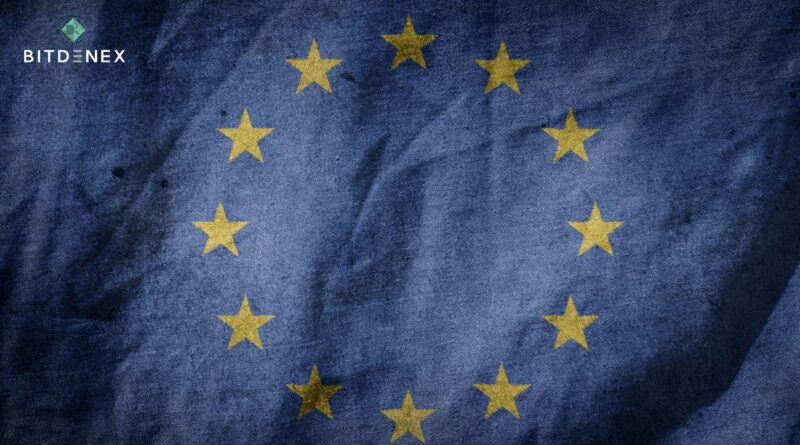Europe drives institutional cryptocurrency adoption: Blockchain Expo Amsterdam
Cryptocurrency exchanges and companies view the continent as a key region for growth, according to key speakers at the Blockchain Expo Europe in Amsterdam.
According to major speakers at Blockchain Expo Europe 2023 in Amsterdam, Europe is a healthy place for the bitcoin ecosystem to thrive in comparison to tougher regulatory frameworks. Cointelegraph attended the event for the second year in a row, which was held in the RAI Amsterdam convention center as part of a bigger Tech Expo event sponsored in the Netherlands. The event has traditionally drawn notable mainstream financial industry companies to demonstrate how blockchain technology is being used to power innovative new products and solutions across a wide range of industries. Blockchain technology and Web3 capability continue to be important growth areas for various sector participants in finance, logistics, healthcare, and marketing.
MiCA bodes well for institutional adoption
Regulatory issues continue to dominate, as evidenced by a fireside talk with Coinbase institutional sales co-head James Morek and Zodia Markets co-founder Nick Philpott. The European Union’s Markets in Crypto-Assets (MiCA) laws, according to Philpott, are a progressive regulatory move that will steer the sector’s expansion while protecting customers. “Institutions feel more comfortable knowing that there is a framework within which they can operate, which is at odds with what is happening in countries like America.” Philpott’s reference to the regulatory situation in the United States was centered on a cloud of uncertainty over the bitcoin industry. This has been primarily driven by the Securities and Exchange Commission’s separate enforcement actions for suspected securities violations against key industry players like Coinbase, Ripple, and Binance.US.Morek, who oversees Coinbase’s institutional sales in the EMEA and APAC areas, also emphasized the introduction of clear legal constraints in the EU and the United Kingdom, which have allowed crypto-related enterprises to continue to operate. Off-the-record conversations also indicate that major firms like Coinbase continue to attract institutional clients seeking exposure to or custody of specific cryptocurrencies outside the United States.
This comprises a wide range of possible clients, including traditional fund managers, huge enterprises, private banks, and a wide range of businesses. According to Morek, Coinbase presently serves over 1,300 institutional customers worldwide.
A tokenized future
Tokenization continues to be appealing to a variety of institutions, including traditional banks and financial firms wishing to issue and manage loans and assets. Martijn Siebrand, digital assets ecosystem manager at Dutch bank ABN AMRO, was also interviewed by Cointelegraph. He discussed ABN AMRO’s recent issuance of a digital green bond to generate 5 million euros ($5.3 million) using Polygon’s layer-2 Ethereum scaling technology.
“It’s funny, if we have now talked within the bank, people say capital markets have been there for a long time already, yet we haven’t seen many innovations,” Siebrand said of blockchain technology.
“We notice two tracks. The institutional one caters to traditional capital markets. However, we also have the opportunity to assist clients that are too large for crowdfunding but too tiny for capital markets.” Siebrand stated that tokenized debt offerings can be beneficial for organizations that do not wish to sell shares. However, before ABN AMRO can construct a functional strategy to expand its blockchain tokenization offers, jurisdictional regulatory frameworks must be further developed. “We think that private markets involving private issuances, which are one-on-one or with two or three investors, will be easier to scale than the institutional one.”
NFTs remain valuable for institutions
Mia Van, Mastercard’s EMEA lead for blockchain and digital assets, discussed the usefulness of nonfungible tokens (NFTs) for institutional users. According to Van, the industry has generated $1.9 billion in sales volumes over the last year, with the average number of Web3 wallets increasing despite sellers dominating NFT markets in recent months.
Luxury firms such as Breitling and Louis Vuitton, according to Van, actively use NFTs to create digital twins of things that confirm their origin. Meanwhile, prominent companies such as Adidas and Nike continue to experiment with NFTs and metaverse activations that provide consumers with ownership of objects in both the physical and metaverse worlds.
Mastercard is also integrating into the Web3 ecosystem. Animoca Brands announced a $30 million investment in neobank platform Hi earlier this year. The platform’s one-of-a-kind offering is a customisable NFT-styled crypto debit card. Users can personalise their Mastercard with NFTs they possess digitally, allowing them to display their valued Bored Ape in the real world. Van declined to elaborate on Mastercard’s blockchain and digital asset strategy and alliances.
Buy and sell crypto in minutes with 0.20% trading fees at Bitdenex Exchange

